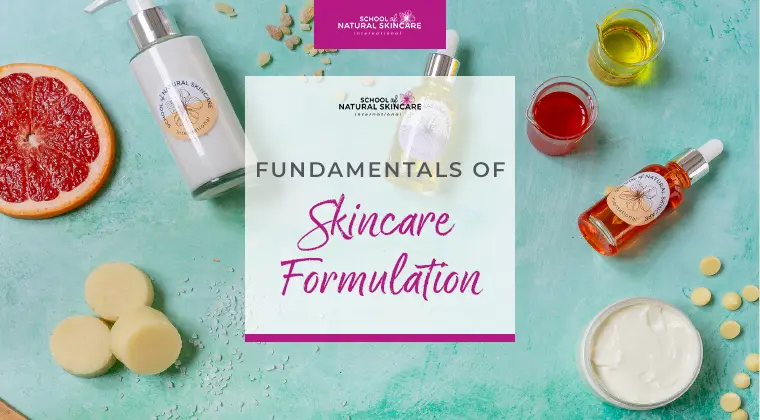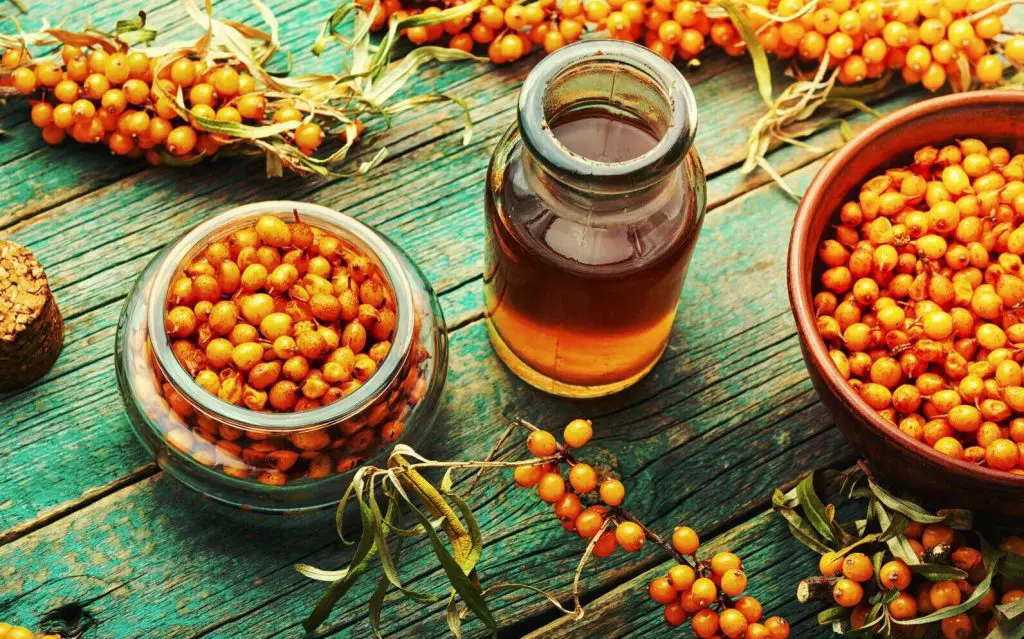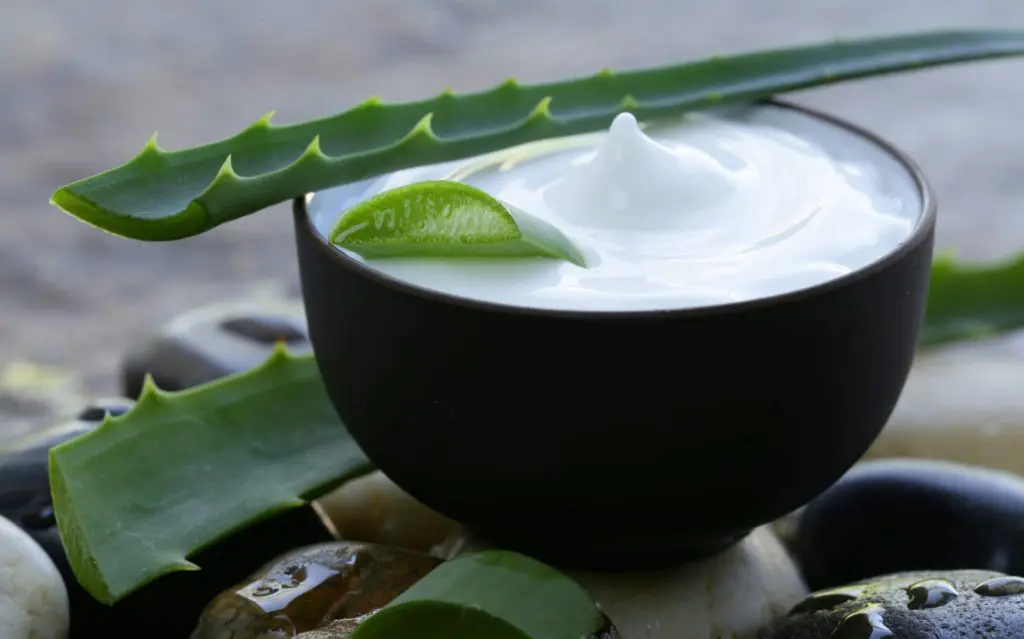What is beeswax and where does it come from?
Beeswax is a natural wax produced by honey bees, who secrete it from wax-producing glands. Freshly produced beeswax is colorless, but over time worker bees introduce pollen into it, giving it that familiar yellow to brown color we all recognize. When beekeepers harvest honey they also remove honeycombs, made of beeswax. The wax is then clarified in hot water to remove any large impurities.
The function, properties and benefits of beeswax in natural skincare
In natural skincare products, beeswax functions as an amazing occlusive – it creates a barrier on the skin and thus prevents water from evaporating. Beeswax is also very useful as a thickener – it will thicken oils to form balms and salves.

What natural cosmetic products can you use beeswax in?
The easiest way to use beeswax is to melt it together with oils to make salves. In this case you will need 10-20% beeswax and the rest will be oils. Beeswax is also a wonderful thickener and occlusive in lip balms.


Around 30% of beeswax combined with butters and oils will make a lovely lip balm. Have a look at this article to find out how to make your own lip balm (with no nasties) for under $1! Beeswax can also be used as a hardening agent in making lotion bars or massage bars.
And finally, you can add 1-2% of beeswax to your creams and lotions for added occlusive properties and some waterproof ability. This is very beneficial as beeswax will create a protective barrier on the skin to prevent moisture loss and its waterproofing capabilities will make your natural skincare products more resistant to being washed off.
When beeswax is used as a natural skincare ingredient, what form does it come in?
When sourcing beeswax directly from a beekeeper, you will likely find it in the form of large chunks or beeswax cakes, but keep in mind that such beeswax can contain small impurities.

This kind of beeswax is usually not tested or analyzed, so we have no way of knowing if it contains any harmful substances, like heavy metals, pesticide residues, etc. This is especially important knowledge if you are producing cosmetics to sell – you will need to have such beeswax analysed, so that you can ensure it is safe for your customers.
When buying beeswax from a cosmetic supply shop, it usually comes in the form of small round pellets or drops.
It can be yellow in color with a familiar beeswax scent, but you can also find refined beeswax that is lighter in color (all the way to white/colorless) and that has little to no scent.
What beeswax isn’t…
Even though many online sources state that beeswax is an emulsifier, this is only partially true.
Beeswax only works as a water-in-oil (W/O) emulsifier, meaning it will create heavy, greasy creams, also referred to as cold creams. It can only emulsify a small amount of water and even then the emulsion will not be stable over a long period of time – unlike an emulsion made with proper emulsifiers, which will remain stable.
If you are using beeswax to make W/O emulsions, you will likely see that the emulsion tends to separate, especially if it is kept at warmer temperatures, and it will probably fail a laboratory stability test. On the other hand, if you are trying to make a light, oil-in-water (O/W) emulsion with beeswax, you will end up with a lump of oil/wax floating in your water phase.
It is much better to find a proper emulsifier and use beeswax as a thickener or occlusive additive in your recipe.
For information about natural emulsifiers, check out our article: Quick guide to natural and organic emulsifiers for cosmetics.
What are the alternatives to beeswax in natural skincare?
Interestingly, many cruelty-free certificates permit the use of beeswax. It is not tested on animals and it can be harvested in different ways. However, the majority of commercial beekeepers requeen (kill the current queen) on a schedule if she is unable to reproduce or has lazy, sterile males.
If you are looking for natural vegan cosmetics, be sure to check for beeswax in the ingredients list – beeswax is an animal-derived ingredient and therefore not suitable for natural vegan skincare products. It can, however, be substituted with various plant-based waxes; most commonly candelilla wax and carnauba wax.
Sometimes when looking for plant waxes, what you will actually find are hydrogenated vegetable fats.
Hydrogenation saturates unsaturated fatty acids, causing a higher melting point. This means that hydrogenated oils will be solid at higher temperatures and will resemble wax. This is the case with almond wax, olive wax and some others. Chemically speaking, they are not waxes, but they will still help to harden your balm, just like waxes do.
What should you do if you see a skincare recipe with beeswax in it?
Beeswax is an excellent ingredient widely used in natural and organic skincare and, as we’ve established here, it most definitely has its place and offers good benefits and properties.
What you need to make sure of is that it is being used properly in a natural skincare product, ie as a thickening agent. If your recipe suggests it is used as an emulsifier, we advise you to find some better natural skincare recipes to follow.
If you are ever unsure about a skincare recipe and whether it is safe to follow or not, check out our article Checklist: How to make sure the skincare products you make are safe and stable. Be sure to download the free guide listed within it!
In addition to this, we also wrote Debunking DIY: How to spot an unsafe skincare recipe; an article that might offer some additional helpful advice on skincare recipes.
Our courses help people learn to make their own natural skincare products using luxurious natural and organic ingredients.
If you are a beginner, then you will want to know about the 120+ natural skincare recipes found in our Certificate in Making Natural Skincare Products, which will help you to make your own complete range of natural skincare products!
However, if you’d rather learn to create your own natural skincare products from scratch, like a professional, without following other people’s skincare recipes, then you will want to enroll on our Diploma in Natural Skincare Formulation.
And if you are a beginner who wants to do both – learn how to make natural skincare products using our 120+ natural skincare recipes and then progress to creating natural skincare products from scratch for yourself – check out our full Beginner to Formulator Program!
If you want to look around here for a bit longer before enrolling, check out our Free Natural Beauty Recipe Book featuring natural skincare recipes to make your own natural facial care and body care products with natural ingredients.
Free Online Organic Skincare Formulation Course
Fundamentals of Skincare Formulation

Learn the essentials of skincare formulation with our FREE course!
If you’re confused by all the misleading information out there, we’re here to guide you. Learn how to create natural and organic products confidently, using industry best practices, under the guidance of professional cosmetic scientists.
Exclusive for our newsletter subscribers. Sign up now.
We look after your data in accordance with our privacy policy.
What you’ll learn:
- Formulation Foundations: The basics of cosmetic chemistry and skincare formulation.
- Bodycare: Make a shea-butter-rich body moisturizer with our pro formula.
- Facial Skincare: Rejuvenate your skin with our two facial oil formulas.
- Creams & Lotions: Create shelf-stable moisturizers using our tried-and-tested formula.
- Natural Ingredients: Understand the key natural and organic ingredients used in formulations.
Exclusive for our newsletter subscribers. Sign up now and start formulating your own natural products today!
Loved learning about beeswax? Make sure to pin this article so to remember 🙂




